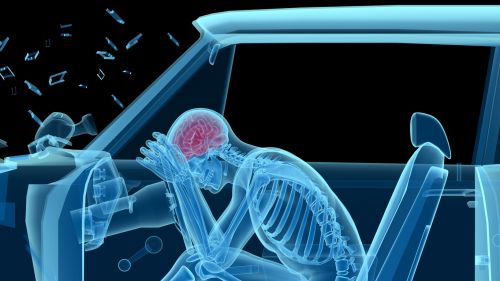Traumatic brain injuries (TBIs) are among the most severe injuries you can sustain after a car accident. After a car crash, the fragile structures of the brain collide against the walls of the skull, becoming susceptible to inflammation. As a result, you will experience symptoms impairing your ability to deal with daily tasks.
Unfortunately, many of the symptoms go unnoticed by victims. The innocuousness of most symptoms causes many car accident victims to brush the possibility of TBI aside. When victims ignore the signs of TBI, they can receive improper treatment or risk permanent damage to the brain.
Besides calling a brain injury lawyer, keep an eye out for these five TBI symptoms after a car accident. Check for these five symptoms, and you can protect yourself from further damage and seek proper medical and legal advice.
1. Frequent Nasal Discharge
If you have to wipe your nose more often after a crash, call your physician immediately. The nasal discharge is not a cold; it’s a sign that CSF (cerebrospinal fluid) is leaking.
CSF is the fluid that surrounds the brain. It protects the brain from colliding with the skull during sudden movements.
The skull encases the brain and CSF. A leak is a sign of a skull fracture. Skull fractures often accompany brain inflammation after a crash, warranting emergency medical care.
2. Mood Changes or Sudden Irritability
Another sign to look out for is any sudden change in mood or easy irritability. Mood swings can indicate trauma to specific brain structures. In particular, mood swings may be a sign that there has been trauma to the frontal lobe.
The frontal lobe is the portion of the brain that lies in front. It’s responsible for many functions — such as the regulation of emotion. Any impact on the frontal lobe can create imbalances in mood and excitability.
During a crash, the frontal lobe is vulnerable, especially when an accident victim wasn’t wearing a seatbelt at the moment of impact. Although sudden mood shifts aren’t always indicative of frontal lobe trauma, they may signal the need for medical attention.
3. Frequent Drowsiness
Brain trauma can have a depressive effect on the central nervous system (CNS). CNS depression manifests as a collection of symptoms. Early on, many victims will report feelings of fatigue or drowsiness.
If you experience a frequent and recurring desire to take a nap after a car crash, don’t delay. You’re experiencing one of the early signs of CNS depression and must seek medical attention immediately.
4. Brain Fog
Brain fog is a cognitive symptom characterized by an inability to form thoughts and concentrate. It happens after the ingestion of certain foods. Brain fog can also occur after any impact on the skull or TBI.
After a crash, sudden shifts in the CSF occur. These sudden shifts make the brain more susceptible to collisions with the skull. When the brain collides with the skull, it becomes inflamed on several sides. The inflammation causes disorientation which manifests as the inability to concentrate or focus.
5. Tinnitus or Ear Ringing
Brain inflammation affects several structures at a time. Among these structures are the temporal lobes. The temporal lobes lie on the left and right sides of the brain, housing the auditory centers of the brain.
The auditory centers enable the processing of sound waves. Any inflammation or disturbance in these centers will prevent a person from hearing correctly.
Auditory disturbances can be total or partial. Partial disturbances usually manifest as a “ringing of the ears.” When you experience this even days after a crash, seek medical attention immediately. Also, call your car accident attorney to file a car accident claim.
Are You Experiencing Any of the Above Symptoms? Call Your Car Accident Attorney and File a Claim
TBIs require special and immediate medical care. Of course, medical care after a car accident will not be cheap. The expenses can be so high that your insurance may not suffice.
Luckily, you can do something to offset the costs of your treatment. By filing a claim against the driver who caused the collision, you can receive compensation reimbursing you for your medical expenses and property damages.
File a claim with an experienced car accident attorney. Reach out now and book a free consultation.

